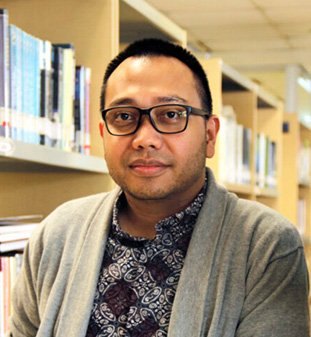
Sukma Putra, SE., M.Ed.
Sukma Putra, SE., M.Ed. Currently working as BINUS Case Center Manager at Bina Nusantara Business School. In the process, he has been involved in the making of more than 20 business case studies in BINUS and was certified by Ivey Business School for case study writing and teaching in 2017. Previously he was in various positions in Australia Awards Indonesia (AAI) for 10 years and mostly managed projects for prominent alumni in Indonesia focusing on development areas such as food security, health, education, poverty reduction, energy and innovation of technology and infrastructure.
Case Document
[CASE STUDY] TOYS ‘R’ US: THE DEMISE OF THE TOY EMPIRE
[CASE STUDY] CONWOOD HOUSE IN 7 DAYS: DISRUPTIVE BUSINESS MODEL
The competition in the construction material industry is growing rapidly. More and more innovation is being applied in all area in the industry where incremental improvement is no longer an advantage but an essential to survival. Looking at this landscape, where disruption can happen anytime, Conwood Indonesia decided to disrupt themselves by taking an action to leap frog the competition by diminishing the top two most constraints in the building and construction industry: time and working capital.
Following its successful entry into the segment of premium wood using environmentally friendly materials, Derek, the incoming President Director of Conwood Indonesia, faced with the inevitable truth. The market faced structural problem with overcapacity and the influx by import produces. Situation predicted to continue to worsen with new capacity continue to enter the market from new local producers and from tax free imports. Conwood Team decided to capitalize on the unique strength of its technology, unmet demand for affordable housing and the limitation facing the Indonesia construction market. In July 2016, Conwood started to transform itself from a purely manufacturing company into Innovation driven company. With limited resources, how can Derek and his team, within 3 months, act quickly to solve the problems with new innovation while concurrently unravel the issues raised from the innovation itself?
[CASE STUDY] LEADERSHIP IN RURAL AREAS: A CASE STUDY IN INDONESIA
This case study discusses some inspiring rural leaders consisting of the Regency of Purwakarta (West Java), Batang (Central Java), and Bantaeng (Southeast Sulawesi). Why rural leadership?
Rural leadership is interesting to discuss especially in transitional countries such as Indonesia, where the agricultural-based society is still very strong versus industrial-based societies. Nowadays the discussion about rural-based development depends very much on the leaders. It is said if the leader is bad then the region will not go anywhere and the leader ends up under government financial scrutiny or in jail.
In this case study three leaders change the mindset and mentality of their people, apply corporate governance especially in allocation and budget, and implement system-based government instead of preserving the cult of the individual. Each of the regents were owed credit due to their high achievements from very mediocre region that they ruled.
[CASE STUDY] JNE: LEADERSHIP IN LOGISTIC COMPANY
In mid-2014, Feriadi contemplated the way back to his home while accompanied by the sound of radio newscaster’s in his car. The news mostly discussed about some of the structural weaknesses in the economy of Indonesia, such as the rise of the e-commerce and the leadership system that have less influence on employee performance. With the rocketing competition from similar businesses, he thought harder on how to increase the growth of their company while not unsettling the current value of JNE.
